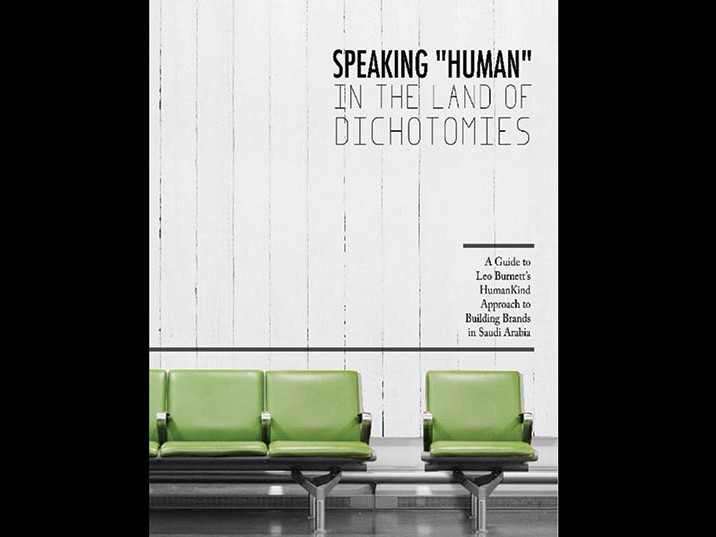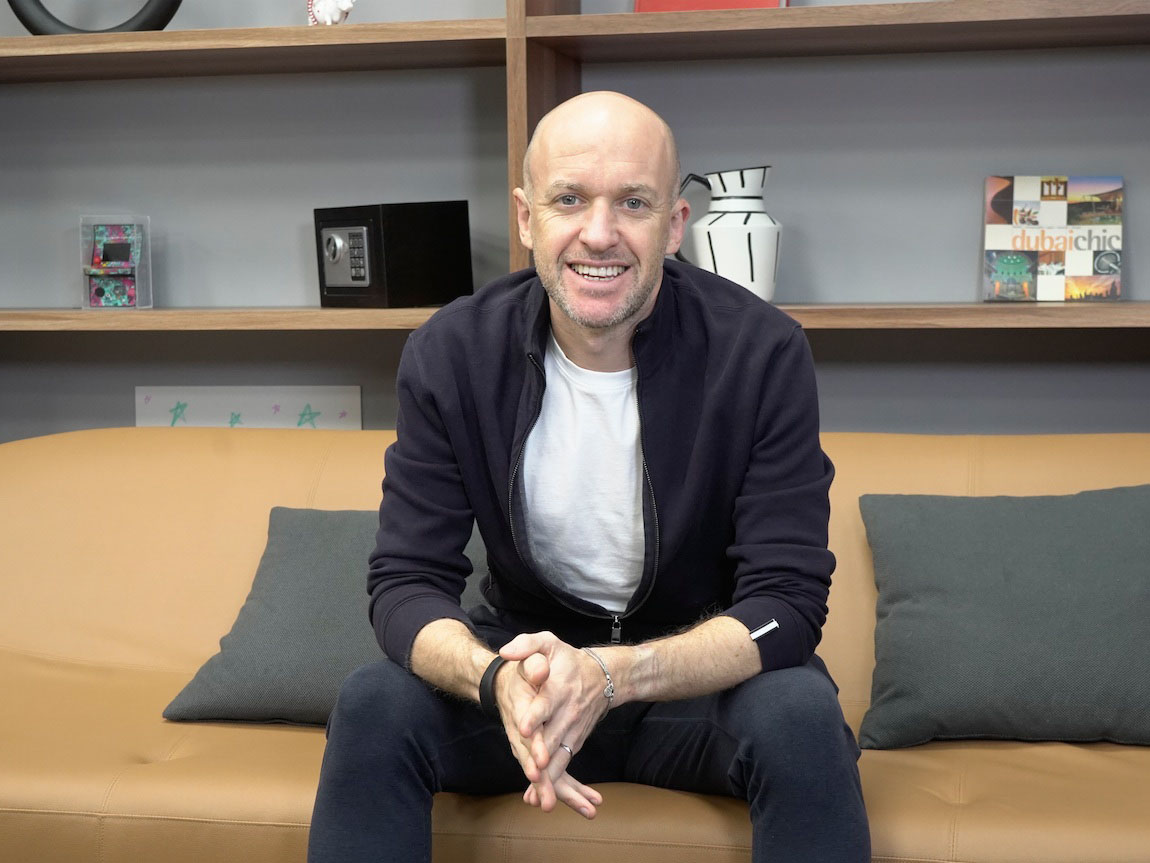Industry Talk
New Book to Challenge Perceptions on the Saudi Market
by Ahmad Abu Zannad
February 17, 2014
.jpg) Advertisement
Advertisement
The area’s distinctive natural landscape has this in common with its marketing landscape, where we see brands improperly strategising and interacting with this unique market. It is probably due to the peculiar nature of its market that Saudi has long been approached with extreme caution and discouragement to do something courageous, extraordinary, purposeful, meaningful and relevant to the Saudi people. The book: “Speaking “Human” in the Land of “Dichotomies” A Guide to Leo Burnett’s HumanKind Approach to Building Brands in Saudi Arabia” challenges this fact, where it illustrates the cultural fuel that shall propel brand strategists to identify relevant and meaningful purpose for their brands, it highlights the cultural shifts being witnessed in Saudi Arabia that can inspire acts creation, and it takes what is perceived to be among the most odd of behaviours in Saudi Arabia to illustrate that once such a behavior is analysed through a human lens it can be the source of inspiration for brands. As stated in the book: “…Saudi Arabia presents an interesting opportunity for advertisers; they have the chance to understand the human element that lies beneath the exponential increase in digital engagement, to find out how newly-famous online celebrities are influencing a generation, to parse the challenges facing the ambitious youth entering the job market, and the women aspiring to play a more prominent role in society”
From there, the book challenges conventional marketing practices and brand-building approaches to introduce a relevantly new approach: Leo Burnett’s “HumanKind.” HumanKind provides a different approach to brand building and a unique look at marketing that serves true human needs, not the other way around. The book offers a summary on the HumanKind Quotient, a proprietary research tool that measures a brand’s performance based on HumanKind measures. It also presents the results of the HumanKind Quotient Global Study, which was conducted in 11 countries for 778 brands across 155 categories and including 37,900 respondents; in a nutshell, the study proves that HumanKind actually works.
The book offers a deep dive into the HumanKind Quotient Saudi Study to show from a HumanKind perspective how Saudis behave towards brands in general and how they behave towards certain categories and certain brands in specific, also, a look into powerful local brands is done to learn about what exactly could work in the Saudi market, this section shows how brands such as Jarir Bookstore, Al-Baik and Ahmad AlShugairi have been able to make deep impacts on the people of Saudi Arabia. Finally, a HumanKind case study is summarised to bring to life all the concepts and conclusions drawn across the different chapters of the book, the case shows how genuine attempts to understand the tensions between how Saudis are living their lives today and how it ought to be better has allowed a local pharmacy chain to play a meaningful and active role in the lives of people, a role that has gone above and beyond that of a retail outlet, while engaging the people and achieving humongous amounts of business success in the process.
In conclusion, the book highlights the opportunities coming the way of any brand in the Saudi market due to the cultural transitions it is witnessing: “…Saudi culture is currently witnessing major shifts, and during such periods of transition, there is always a great opportunity for brands to adapt and empower the people. Saudis are now facing the dilemma of trying to seek their individuality without abandoning their roots. The rise of urbanisation has made Saudis more free and put them in charge of their own destinies. Their roles in society are no longer assigned to them, but often based on individual merit, producing a new set of aspirations and dreams for Saudis. A better understanding of the culture will lead to more relevant, meaningful and effective marketing, branding and communication strategies.”

Ahmad Abu Zannad is Head of Strategy at Leo Burnett Saudi Arabia




.jpg)


.jpg)







